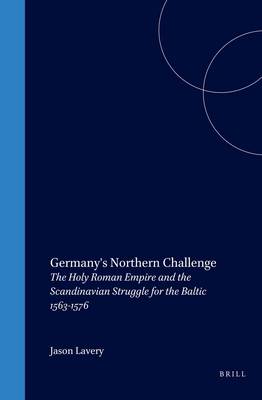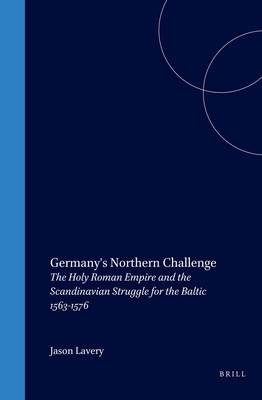
Je cadeautjes zeker op tijd in huis hebben voor de feestdagen? Kom langs in onze winkels en vind het perfecte geschenk!
- Afhalen na 1 uur in een winkel met voorraad
- Gratis thuislevering in België vanaf € 30
- Ruim aanbod met 7 miljoen producten
Je cadeautjes zeker op tijd in huis hebben voor de feestdagen? Kom langs in onze winkels en vind het perfecte geschenk!
- Afhalen na 1 uur in een winkel met voorraad
- Gratis thuislevering in België vanaf € 30
- Ruim aanbod met 7 miljoen producten
Zoeken
Germany's Northern Challenge
The Holy Roman Empire and the Scandinavian Struggle for the Baltic 1563-1576
Jason Lavery
€ 245,95
+ 491 punten
Omschrijving
Shortly after the Augsburg peace settlement of 1555, from 1563 to 1576, the Holy Roman Empire was threatened by the rivalry between Denmark and Sweden. This book examines the empire's reaction to a foreign crisis, the Seven Years' War of the North, and the connections between foreign policy and internal imperial politics. As this study will show, and contrary to most assumptions, the empire, through its confederal structure, was able to provide effective means for defending the domestic order against external dangers. Further, the empire could conduct a common foreign policy to protect common interests. This study highlights the empire's internal organization and politics by introducing two new concepts: initiative and consensus. Initiative was possible on the basis of consensus, but as this study reveals, there were two specific limits on building consensus. First, the empire's polities could only support a common approach if they had common aims. Second, a united approach to an outside crisis had to foster the preservation of internal stability. Motivated by German commerce in the Baltic, the empire was persistent in trying to achieve peace in that region. The empire was not alone in its interest in the Scandinavian conflict, which threatened no less than the economic well-being of western Europe.
Specificaties
Betrokkenen
- Auteur(s):
- Uitgeverij:
Inhoud
- Aantal bladzijden:
- 184
- Taal:
- Engels
- Reeks:
- Reeksnummer:
- nr. 27
Eigenschappen
- Productcode (EAN):
- 9780391041561
- Verschijningsdatum:
- 5/07/2002
- Uitvoering:
- Hardcover
- Formaat:
- Genaaid
- Afmetingen:
- 166 mm x 233 mm
- Gewicht:
- 381 g

Alleen bij Standaard Boekhandel
+ 491 punten op je klantenkaart van Standaard Boekhandel
Beoordelingen
We publiceren alleen reviews die voldoen aan de voorwaarden voor reviews. Bekijk onze voorwaarden voor reviews.









